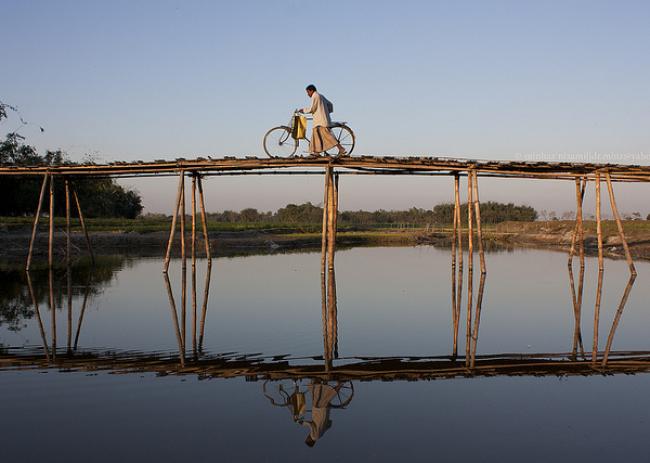Articles Menu

The climate negotiations entered their final day, and we geared up for our most audacious action. Several buses brought four hundred activists to different locations near the conference hall. Adrenaline running, we walked fast toward the gates and the guards. After a week of discussing sea level rise, eating vegan food, blocking car traffic, and marching in the streets dressed as polar bears and turtles, we were out to make a real difference.
Chaining our bodies to the gates and each other, we tried to prevent the negotiators from leaving the hall until they had come up with a proper agreement, all the while chanting: “No more bla bla bla — action now!”
That was twenty years ago, at the very first United Nations Climate Change Conference (COP), in Berlin. The negotiators, needless to say, snuck out the backdoors. Since then, a tidal wave of bureaucratic logorrhea has rolled over the planet every December, as the COPs have degenerated into annual exhibits in the latest innovations in officialese. No tangible measures other than the construction of various vacuous carbon markets have materialized; CO2 emissions from fossil fuels have not declined, not leveled off, not increased a little more slowly, but soared by 50 percent under the cover of two decades of ever more bla bla bla.
And now the demonstrations at COP21 in Paris have been banned. This decision by the French state was not an anomaly, brought about by the November 13 massacre. Repression has intensified at every summit since the fateful COP15 in Copenhagen.